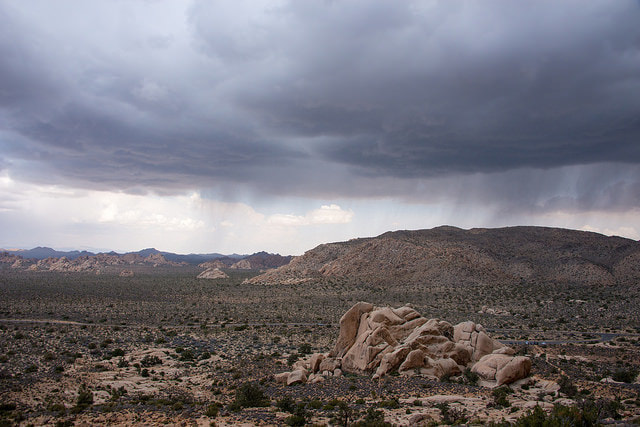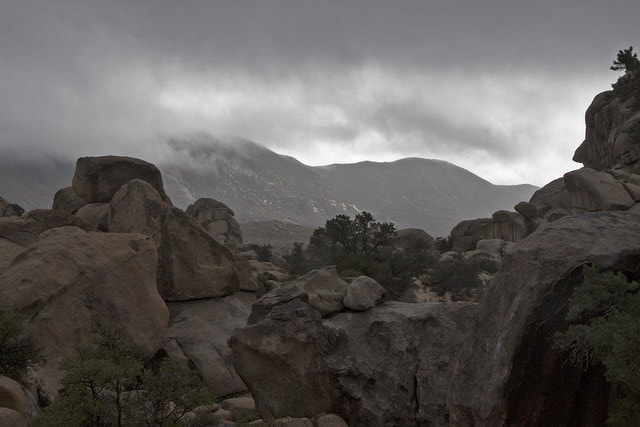ˈpeˌtrīkôr/
But this week we got a good drenching. My neighbor’s backyard gauge read a whopping 2.5 inches. The garden is looking fresh-washed, and the leaves have got that sheeny plumpness they never get under the sprinkler.
And I have had occasion to contemplate a lovely word that gets very little use around here: “petrichor.”
Until 1964, that is, when two intrepid Australian geologists, Isabel Joy Bear and Richard Grenfell Thomas, took it upon themselves to understand exactly what that smell is and where it comes from. Their article, “Nature of Argillaceous Odour,” appeared in the journal Nature, and their analysis proved unexpectedly illuminating for me.
I had always assumed the rain-smell is biological in origin: some bacterial funk in the ground loosening up and breathing out in the welcome presence of moisture.
But while this is to some degree true in wet, fertile regions, in deserts like the one I live in, the smell comes from the rocks themselves. Bear and Thomas demonstrated that pure mineral samples, even those heated in a kiln to destroy any organisms present, nonetheless release the odor when moistened or even breathed on. When they isolated and examined the substance, they found that it is the result of a reaction between the rock and plant oils in the air; this stuff accumulates in the rocks and soil in dry weather and then is released into the air when the humidity rises before a rain.
| Bear and Thomas proposed that this fragrant yellowish substance be called petrichor: a compound of two Greek words: petros (πέτρος) meaning stone, and ichor (ἰχώρ), the golden fluid that flows in the veins of the gods. Petrichor, they said, was the “tenuous essence” of rock—its uncanny aromatic lifeblood. |
So petrichor is a kind of lifeblood, circulating throughout the system, telling us that the water has come again, letting us know when it’s time to sprout.
| I feel like the earth, astonished at fragrance borne in the air, made pregnant with mystery from a drop of rain... —Rumi |
*No, not literally ON the desk, thank goodness, or I would be too busy blaspheming the gods to write this.
**Interestingly, while I found a fair number of Greek, Middle Eastern, and Australian poets talking about the smell of rain, examples from England itself are relatively rare. Paradoxically, the fact that the English live in a place where it rains all the time means they probably have little experience with true petrichor, which requires a long dry period to emerge. However, the English will not shut UP about the smell of dew, which operates on a similar principle.



 RSS Feed
RSS Feed